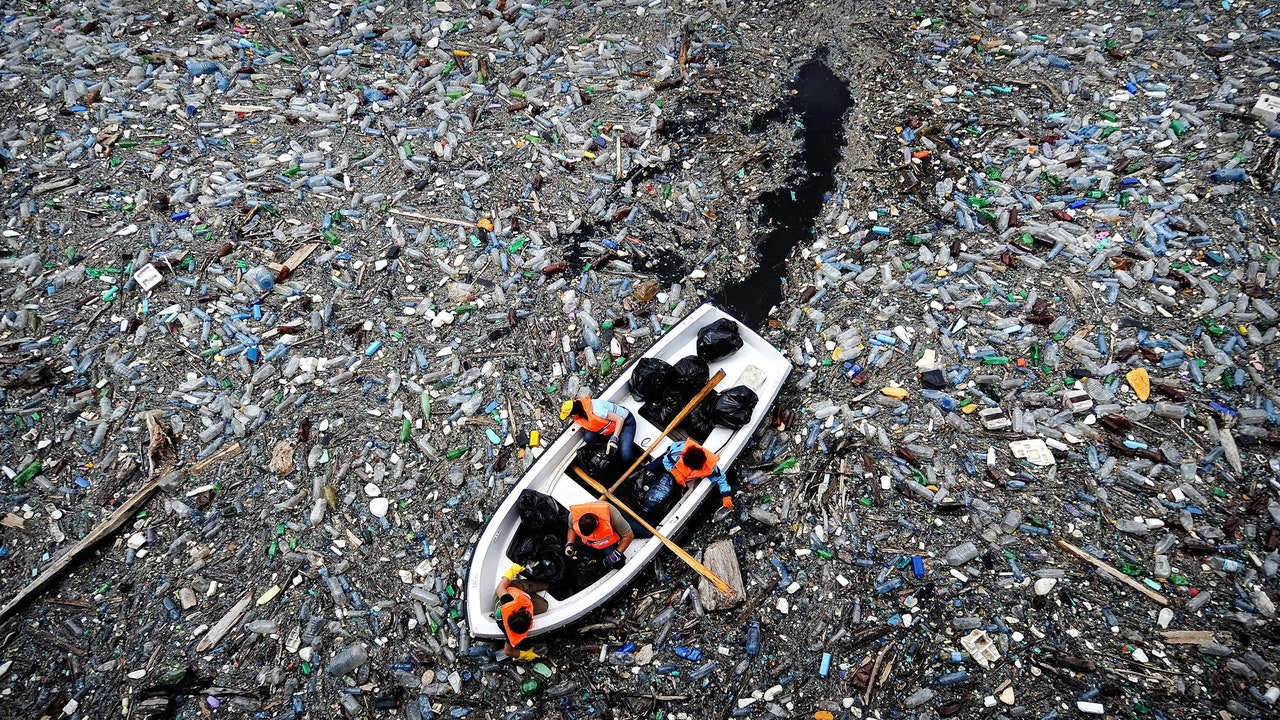The United Nations has made a sobering prediction: by 2100, the world will be 3.2 degrees hotter. Let’s be clear – life after such a temperature rise will be nothing short of a nightmare. In 80 years’ time , Rio de Janeiro, Singapore and Miami will be among the cities part-engulfed by rising water. Famine caused by spiralling crop production will come coupled with extreme heat and droughts. Coral reefs will be completely dead.
The pressure to change before it’s too late will largely fall to big businesses, which generate the majority of greenhouse gases on a global scale. ExxonMobil, Shell, BP and Chevron, for example, – were among the 100 companies named as responsible for 71 per cent of global emissions, according to a report by the Carbon Disclosure Project.
But all business leaders, from multinationals or small enterprises, will be measured against the urgency and ambition of their actions. The climate emergency is happening, and whether you like it or not, it is going to deeply affect your bottom line and the reputation of your business. Doing nothing is no longer an option. Here’s what they need to do.
1. Admit your company needs to change, fast
How much is your business contributing to the climate change problem? If you don’t know the answer, you have a serious problem. It’s not just your own operations, but also your supply chain and customer behaviour that creates a carbon footprint. To determine the scale of the problem, perform an internal audit to examine whether all of the people and partners that help you to make your products or end services share your same values. You might be shocked at what you find.
Look deeply into your full value chain and your current partnerships and stop doing business with companies that do not share your commitment to the climate emergency. Senior leaders and strategy teams will need to rethink the company’s overall business model and consider how to transition to one that is restorative, regenerative, and circular by design.
This doesn’t mean sacrificing profits, as proven by companies such as Yerdle Recommerce, a website that specialises in second-hand sales for brands, and Desso, which has developed carpet yarn that can be used over and over again.
Climate change is not often at the top of the agenda for top management meetings – but it should be. This group of people will make decisions about long-term investments that could greatly impact the footprint of the business and can change the company for the better.
2. Get your board to commit to climate change seriously
Your company’s board should approve a clear statement of purpose for the business and publish it in the legal documents of the business. Your board should also acknowledge the climate emergency and be clear that it must make decisions with consideration to long-term, intergenerational shareholders.
For more on what this looks like in practice, look at work from the British Academy Future of the Corporation programme, which is examining the purpose of business and its role in society; the B Corp movement, a community of businesses legally required to consider the impact of their decisions on all their stakeholder (in the UK it recently supported the launch of Operation Upgrade) or the Statement of Purpose campaign, an initiative by Said Business School at Oxford University, Berkeley Law School, and Hermes Equity Ownership Services to have the board of every company publish a “Statement of Purpose” by 2025.
On an immediate practical level, you should all commit to a base line on your current emissions and set targets targets to reach net zero – ideally by 2030. If you can’t make 2030, then make sure you have clear milestones in the lead up to 2050 – the date when the UK has committed to being net zero.
UK herbal tea producer Pukka Herbs brought forward its carbon zero deadline to this year as a direct response to alarming UN reports and said it would partake in climate protests in London and Bristol.
Beer company Toast Ale, which was built on the concept of reusing discarded bread to make its beverages, has partnered with another company to see whether its bread business model can be applied elsewhere. This has even extended into the traditional field of law. Bates Wells became one of the first law firms to commit to net zero emissions in 2019, and has pledged that it will use its legal expertise to fight for the environment too.
3. Engage in collective action
Business engagement in protests is important to dispel the myth that activists are “uncooperative crusties” – a term used by prime minister Boris Johnson to describe the protestors from Extinction Rebellion.
It has become increasingly trendy for companies around the world are to stepping up and encouraging their employees to support climate activism. Examples of this range from Ben & Jerry’s closing for the day to support the student strikes in September and Ecosia’s willingness to cover legal fees for employees who were incarcerated for nonviolent acts of protest. You can also help amplify the protests by providing support to their message – as Seventh Generation did by lending their ad budget for the week to the climate movement.
SUBSCRIBE TO OUR NEWSLETTER
Subscribe our newsletter to receive the latest news, articles and exclusive podcasts every week


